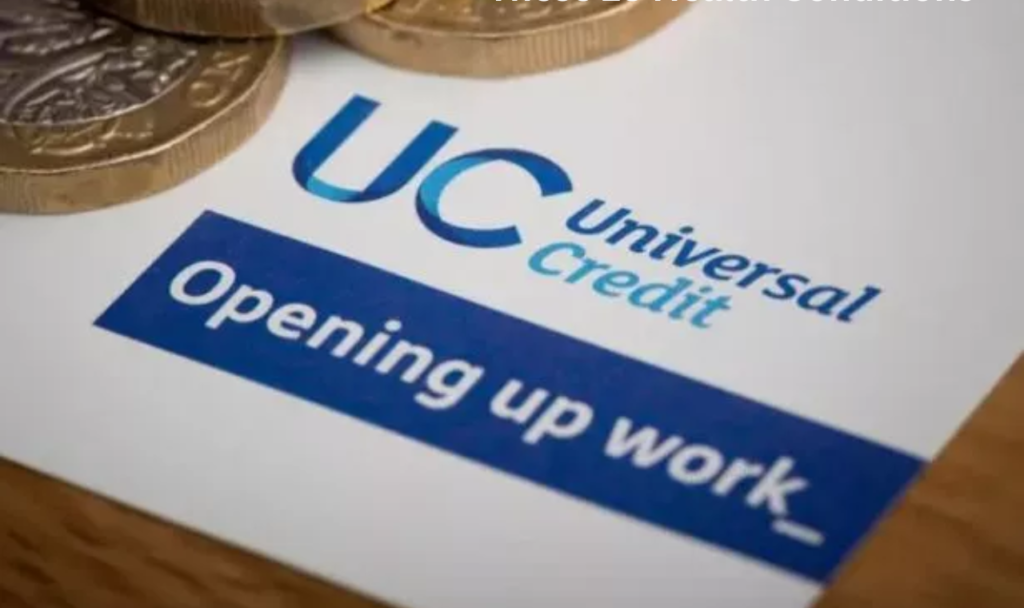The UK government has announced changes to Universal Credit and disability benefits set to take effect in 2025. While some claimants will see an increase in financial support, others may face tighter eligibility rules, particularly those receiving Personal Independence Payment (PIP). Here’s a breakdown of what to expect and how these changes might affect you.
Universal Credit What’s Changing?
Universal Credit, which supports low-income individuals and families, will see a modest rise in 2025.
Increase in Standard Allowance
Starting April 2025, Universal Credit payments will increase by 1.7%, aligning with the Consumer Prices Index (CPI) inflation rate recorded in September 2024. For example:
- A single claimant aged 25 or over will see their standard monthly allowance rise from £393.45 to £400.14.
- A couple (where at least one is over 25) will receive £628.20 per month, up from £617.60.
These increases aim to help claimants keep up with the rising cost of living.
Basic Rate Increase from 2026
Looking ahead, the government has also confirmed that the basic Universal Credit rate for a single person aged 25 or over will rise by £7 per week in April 2026. This means the weekly amount will increase from £91 to £98.

Disability Benefit Reforms: PIP and Work Capability Assessment
One of the biggest changes in 2025 will impact people claiming disability benefits.
Changes to PIP Eligibility
The Department for Work and Pensions (DWP) has announced plans to tighten eligibility rules for PIP. These changes mean claimants will need to meet stricter requirements in areas such as:
- Mobility
- Daily living activities (preparing meals, personal care, managing medication)
While exact details are yet to be confirmed, some claimants may find it harder to qualify for support (DWP Official Website).
Work Capability Assessment (WCA) to be Scrapped
The government is abolishing the Work Capability Assessment (WCA) by 2028. Instead, eligibility for health-related Universal Credit payments will be determined using PIP assessments.
Currently, claimants with Limited Capability for Work and Work-Related Activity (LCWRA) receive an extra £390 per month. After the WCA is scrapped:
- Existing LCWRA claimants will keep their payments.
- New claimants in 2026 and beyond will receive lower amounts (DWP Update).
This shift is expected to reduce the number of people receiving long-term disability-related Universal Credit, as PIP assessments are typically more stringent.
Carer’s Allowance: Higher Earnings Threshold
For unpaid carers, there’s some good news. The earnings limit for Carer’s Allowance will rise from £151 to £196 per week from April 2025.
This £45 increase is the largest in decades and will allow more carers to continue receiving financial support while working. However, those earning over the threshold will lose their eligibility and must notify the DWP to avoid overpayments (Gov.uk Carer’s Allowance).
How Will These Changes Affect You?
Winners:
- Universal Credit claimants will receive a modest increase to help with inflation.
- Carers can earn more without losing their Carer’s Allowance.
- Some disabled claimants may find it easier to receive support as assessments shift to a PIP-based system.
Losers:
- New disability benefit claimants may receive less than current LCWRA recipients.
- Some PIP claimants may no longer qualify due to stricter eligibility rules.
- People earning slightly over £196 per week could lose their Carer’s Allowance entirely.
What Should You Do?
- Check Your Entitlements: Use the government’s Benefits Calculator to see how these changes may affect you.
- Plan for Potential Reductions: If you rely on LCWRA payments or PIP, consider how new assessments might impact your finances.
- Stay Updated: Keep an eye on official updates from DWP to ensure you’re prepared for any changes.
Conclusion
While 2025 brings positive news for some Universal Credit and Carer’s Allowance claimants, stricter rules on disability benefits may create financial uncertainty for thousands. The abolition of the WCA is a significant shift that could lead to fewer people qualifying for disability-related Universal Credit.
If you’re a claimant, review your benefits and prepare for possible changes. Stay informed and seek advice if you’re unsure how these updates will impact your financial situation.

Pankaj Kumar is a journalist at Chandigarh X, covering admit cards, recruitment, and government schemes. His articles provide readers with detailed insights into application processes, eligibility, and exam updates.
Outside of work, Pankaj enjoys traveling, fitness, and cricket, often participating in local matches on weekends.



